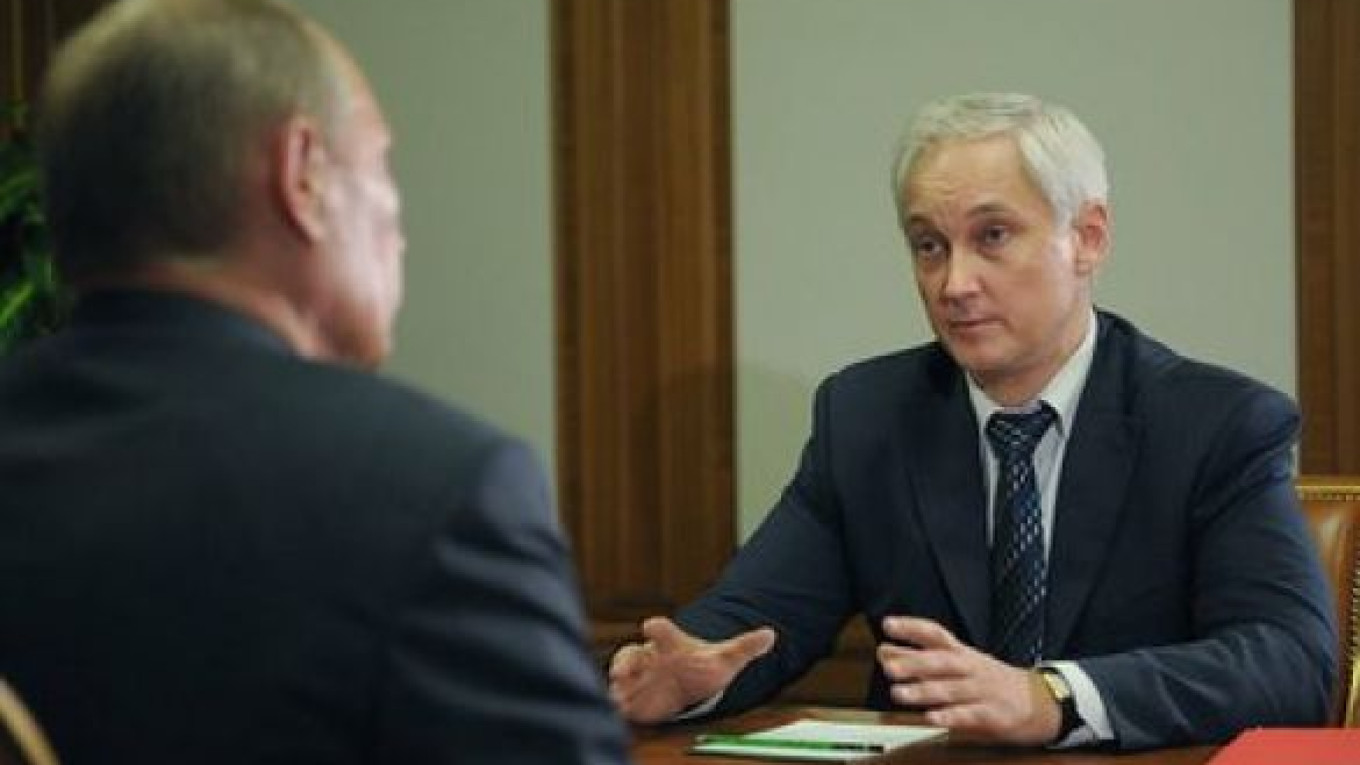Prime Minister Dmitry Medvedev on Tuesday said the government would inject more than $8 billion into the state railway monopoly in a bid to increase freight traffic to far eastern seaports.
Russian Railways will receive the money over five years starting this year in order to expand the capacity of the Trans-Siberian Railroad and the Baikal-Amur Railroad, Medvedev said.
He labeled the funding "desirable" when announcing it at a government meeting dedicated to the development of the Far East, which took place in Yakutia.
Mining companies have long complained that the traffic overload on eastern railways stymied their current business and investment plans by making exports a challenge.
"We have to make sure that we will change the situation," Medvedev said about the congestion.
The government's 260 billion rubles ($8.4 billion) will make up for the shortfall that Russian Railways said it was running for its Far East development plan. In a statement Monday, the company had proposed to attract private investment to fill the gap.
Russian Railways plans to put aside 302 billion rubles for the Far East from its own revenues over these coming five years, the statement said.
Some of the goods that travel by rail to the country's Pacific ports are coal, logs, grain and metals. Russian Railways said the funding would help increase this port-bound traffic by 25 million metric tons a year. It didn't give a comparative number.
In Yakutsk, Economic Development Minister Andrei Belousov said Tuesday that eastern railways "currently" handle a total of 16 million tons of cargo.
It remained unreported Tuesday afternoon if Medvedev approved any of the other spending proposals that the government discussed in Yakutsk as part of the federal Far East development plan.
The second most expensive item on the plan is upgrading airports in the area, which could have a price tag of 101 billion rubles in federal money from now through 2017.
Two bigger air hubs, in Ulan-Ude and Petropavlovsk-Kamchatsky, require a complete overhaul, Belousov said. On top of that, 61 smaller airports need refurbishing.
Improving roads and ports will cumulatively draw another 85 billion rubles from the federal budget over the same time span, Belousov said.
All in all, the Far East development plan discussed Tuesday will require 526 billion rubles from federal coffers, Belousov said. Of that money, 47 billion rubles of budget funds have been allocated for this year, he said.
Medvedev said the government could use the income from investing the National Wellbeing Fund, a portion of the oil revenue windfall, to bankroll Far East projects. The Pension Fund could also lend some of the money that is under the management of VEB, the state-run development bank, he said.
In addition to Russian Railways, there are other state-controlled companies that will heavily invest in the Far East. RusHydro is poised to spend big-time on new power plants in the region, using the money it received from the government last year. The Federal Grid Company looks to set aside a large budget for building power lines there, possibly drawing funding from the VEB-run pension savings.
On another topic, Medvedev said he was speaking seriously last month when he floated the idea of setting up tax havens in Russia, amid reports that Russians would bear the brunt of a banking tax in Cyprus.
"This subject didn't pop up for nothing," he said. "It's not just an emotional reaction."
The government is working to identify the possible benefits and drawbacks of the idea, he said.
Contact the author at [email protected]
Related articles:
A Message from The Moscow Times:
Dear readers,
We are facing unprecedented challenges. Russia's Prosecutor General's Office has designated The Moscow Times as an "undesirable" organization, criminalizing our work and putting our staff at risk of prosecution. This follows our earlier unjust labeling as a "foreign agent."
These actions are direct attempts to silence independent journalism in Russia. The authorities claim our work "discredits the decisions of the Russian leadership." We see things differently: we strive to provide accurate, unbiased reporting on Russia.
We, the journalists of The Moscow Times, refuse to be silenced. But to continue our work, we need your help.
Your support, no matter how small, makes a world of difference. If you can, please support us monthly starting from just $2. It's quick to set up, and every contribution makes a significant impact.
By supporting The Moscow Times, you're defending open, independent journalism in the face of repression. Thank you for standing with us.
Remind me later.


